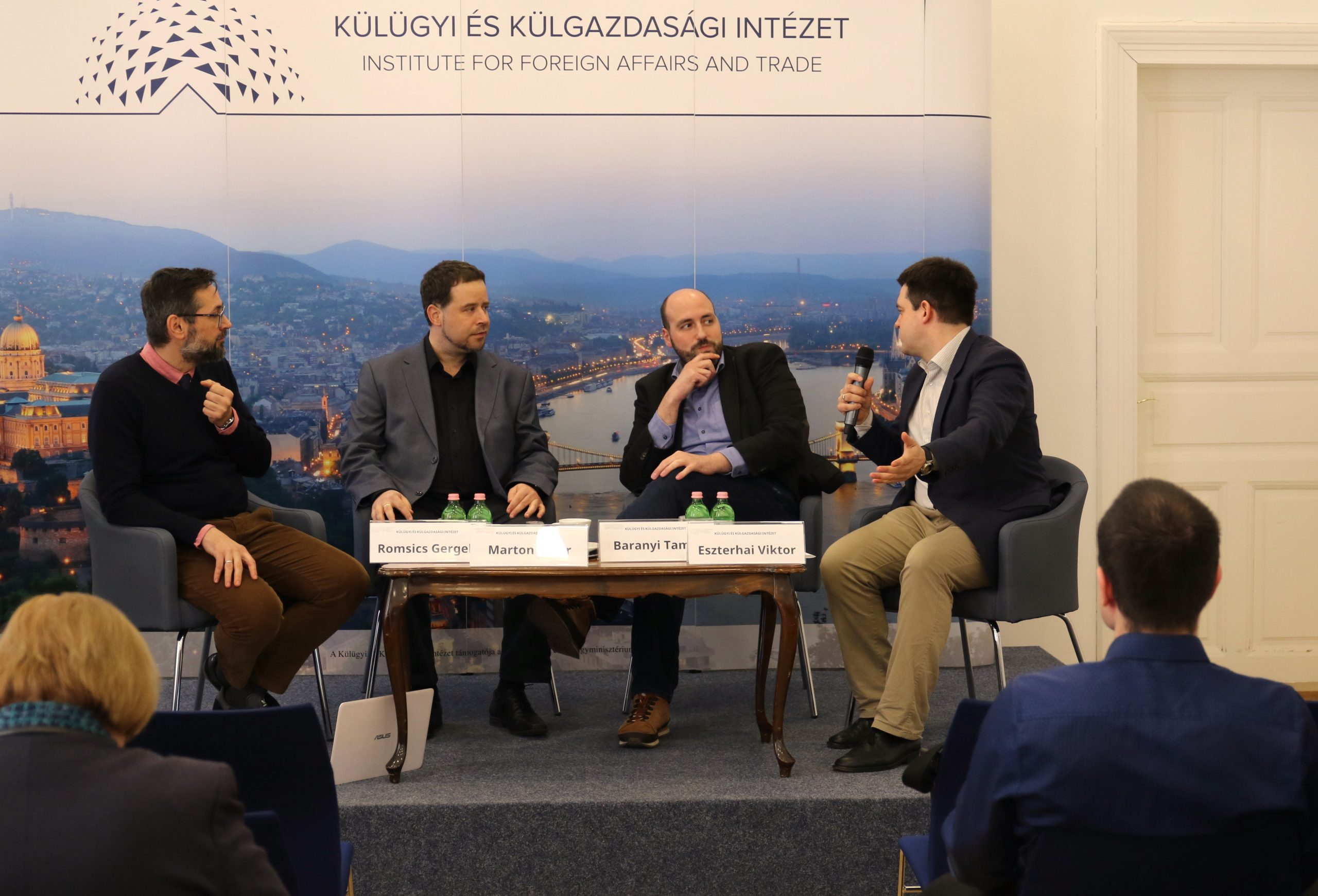On March 28, 2023 the Institute for Foreign Affairs and Trade (IFAT) held introductory lectures and a roundtable discussion commemorating the 20th anniversary of the Iraq War under the title “Iraq war after 20 years – from an American and IR perspective.” Participants of the event were Gergely Romsics, senior fellow at ELKH Center for Liberal Arts; Péter Marton, associate professor at Corvinus University of Budapest; and Tamás Baranyi, Deputy Director for Strategy of IFAT. The conversation was led by Viktor Eszterhai, senior research fellow at IFAT.
In his exposé, Gergely Romsics provided a typology of American foreign policy from the Cold War to present day: in his view, the “foreign policy consensus” withered after 1990 due to the domestic context, and this consensus was only partially restored through the neoconservative turn. Restoring a consensual foreign policy against the background of domestic polarization remains to be the major challenge for the Biden Administration even today.
Péter Marton reviewed the circumstances pressing the United States towards a decision to carry out regime-changing intervention in Iraq in 2003. Subsequently, he examined the question of how the peculiar mix of norm adherence and norm-breaking in this instance worked for the U.S. Norm adherence was present in the fact that the U.S. took action against a regime in constant and recurring breach of fundamental norms of international relations, and that it did so not purely based on its self-interest, while making an attempt to obtain for this the approval of the United Nations Security Council and insisting, in lieu of said approval, on working with a coalition of the willing. Norm-breaking took place through circumvening the UNSC, and because the U.S. considered it important to demonstrate a readiness for just this in the strategic situation in the wake of the attacks of September 11, 2001. The balance related to this ultimately did not turn out to be favourable for the U.S., and its actions led to considerable reputation costs. Regime change in Iraq did not, however, lead to a fundamental crisis of the rules-based international order, as in fact it could not have that effect — with a view to the more constructive elements of U.S. behaviour.
Tamás Baranyi examined the claim that neoconservatives “hijacked” American foreign policy to wage war in Iraq, and pointed out the intellectual diversities of “neocons” and the general inclination for such kind of interventionism in American political thinking. During the roundtable discussion, the theoretical unity and practical fragmentation of American foreign policy practices, U.S. policies vis-à-vis China, and the weakening of American prestige in the developing world have been examined.
Photos by: Institute for Foreign Affairs and Trade (IFAT)

